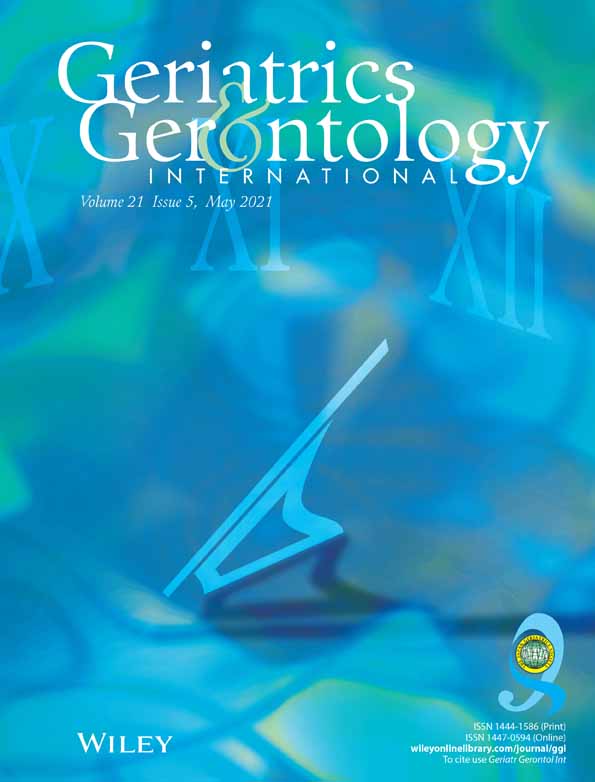Leisure activity moderates the relationship between living alone and mental health among Japanese older adults
Abstract
Aim
As living alone is associated with poor mental health, seeking a moderating factor in this relationship may help enhance quality of life of older people living alone. Therefore, this study examined the moderating effect of leisure activity on the relationship between living alone and mental health in older people.
Methods
This study employed a cross-sectional analysis of questionnaire data. Research was conducted in a metropolitan Tokyo ward from September to October 2017. Participants were 314 community-dwelling Japanese individuals (158 women, 156 men) aged 70–84 years (mean ± SD, 77.7 ± 4.4). We analyzed mental health using the Japanese version of the World Health Organization-Five Well-Being Index as the outcome variable, and the 11 items of the Leisure Activity Scale and living arrangements as explanatory variables. Multivariate analyses were used to examine effects of leisure activity on living arrangements and mental health.
Results
The proportion of people living alone was 22.9% (N = 72), and the mental health score was mean ± SD, 14.2 ± 7.2. Multiple regression analysis showed that subjective economic status (β = −0.177), instrumental activities of daily living (β = 0.167), living arrangements (β = −0.142) and leisure activity (β = 0.481) were associated with mental health. The interaction effect between living arrangements and leisure activity on mental health was significant (β = 0.112).
Conclusions
Our findings show that leisure activity moderates poor mental health in older adults living alone. Accordingly, interventions should encourage older adults living alone to engage in leisure activity to improve their mental health. Geriatr Gerontol Int 2021; 21: 421–425.




